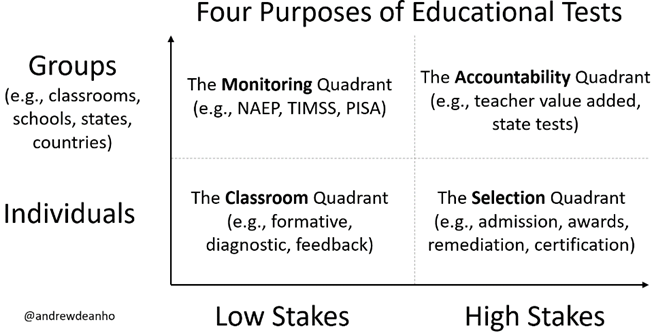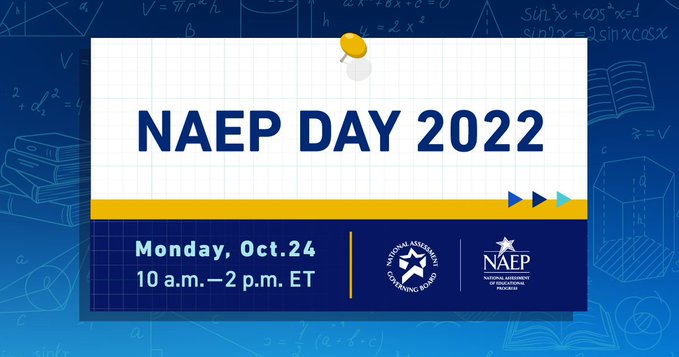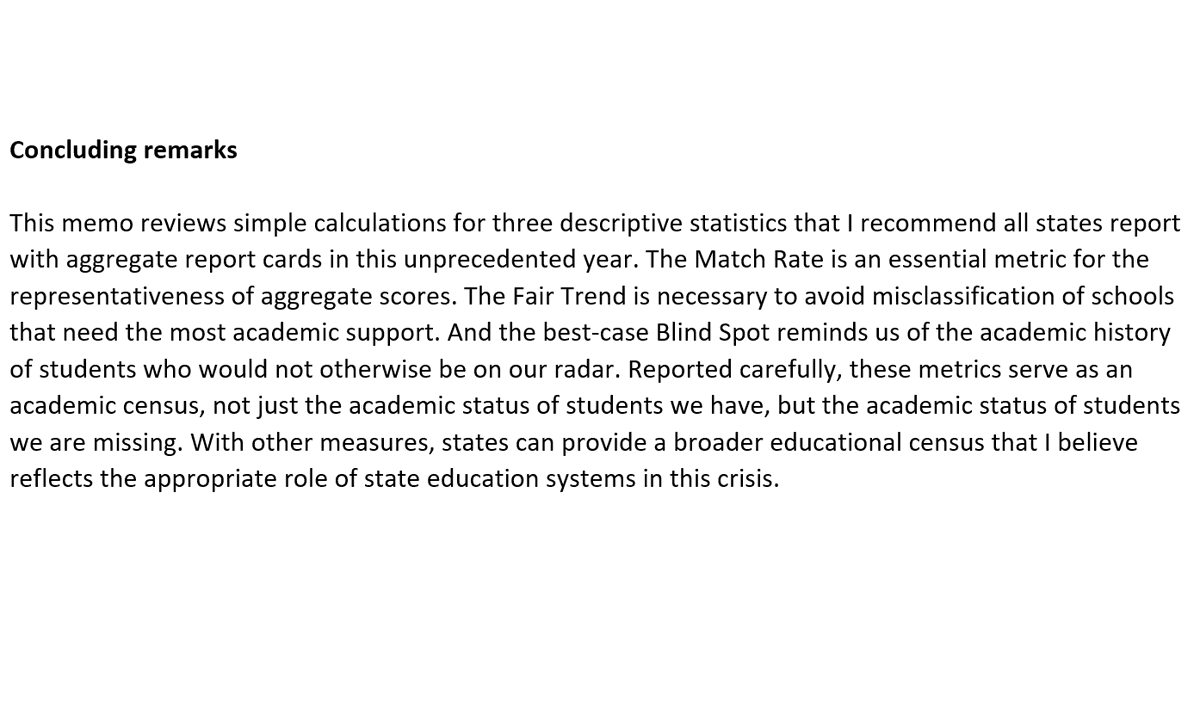Why is Monday’s “NAEP Day” so important? Don’t we already know about “learning loss” after our @CRPE_edu report and the September 1 @NAEP_NCES release? Here are three reasons why NAEP Day matters. 🧵1/
CRPE Report: crpe.org/wp-content/upl…
Sept 1 NAEP LTT:
CRPE Report: crpe.org/wp-content/upl…
Sept 1 NAEP LTT:
https://twitter.com/AndrewDeanHo/status/1565345522050691077?s=20&t=M2YPDdwPQg-uTOTTy4ilNQ
https://twitter.com/GovBoard/status/1583483005951102976
Reason #1: This is NAEP’s ONE JOB: Assessing Educational Progress. Below is my “four quadrants” framework for test purposes. NAEP sits in the upper left: monitoring progress.
scholar.harvard.edu/files/andrewho… 2/
scholar.harvard.edu/files/andrewho… 2/

Tests should follow “the Golden Rule of Testing”: DO NOT CROSS QUADRANTS.
Why can't other tests monitor with authority? State tests can be inflated. Classroom tests can be incomparable. Selection tests can be incomplete. But NAEP? NAEP has one job... It does it with authority. 3/
Why can't other tests monitor with authority? State tests can be inflated. Classroom tests can be incomparable. Selection tests can be incomplete. But NAEP? NAEP has one job... It does it with authority. 3/
Reason #2: State Comparisons. Unlike the Sept 1 NAEP release for the nation (coverage here 
https://twitter.com/smervosh/status/1565296149271117826?s=20&t=aCWQiiZcx5cb2_eZLQPLow), Oct 24 also has state and large-district comparisons. 4/

State and district trends feel more relevant (because we are self-centered and competitive?). And state and district trends are more powerful for generating and testing hypotheses about what we could and should do differently in the future. 5/
With NAEP data, @seanfreardon, @FahleErin, @BenjaminRShear, and I have mapped educational opportunity for schools and districts throughout the country, from 2009-2019: edopportunity.org. More on this soon! @seda_data
6/
6/
Reason #3: Historical perspective. NAEP state trends go back 20+ years. New results should be put in this context.
I have described this as "a decade of progress followed by a decade of stagnation and inequality." But every state has its own story. 7/ nytimes.com/2022/09/01/us/…
I have described this as "a decade of progress followed by a decade of stagnation and inequality." But every state has its own story. 7/ nytimes.com/2022/09/01/us/…
When Monday comes, put your results in perspective. You can see if my "decade of progress, then a decade of inequality" holds true for your state/large district. Track means & variance over time. Here's one pic of G4 Math means. Download your data here: 8/ nationsreportcard.gov/ndecore/landing 

So, Monday (NAEP Day) is important for 3 reasons:
1) NAEP has authority: This is its 1 job.
2) NAEP enables fairer state/district comparisons.
3) NAEP offers a 20+ year historical perspective.
These data have other strengths & limits. I'll try to say more in the days to come! 8/8
1) NAEP has authority: This is its 1 job.
2) NAEP enables fairer state/district comparisons.
3) NAEP offers a 20+ year historical perspective.
These data have other strengths & limits. I'll try to say more in the days to come! 8/8

• • •
Missing some Tweet in this thread? You can try to
force a refresh













